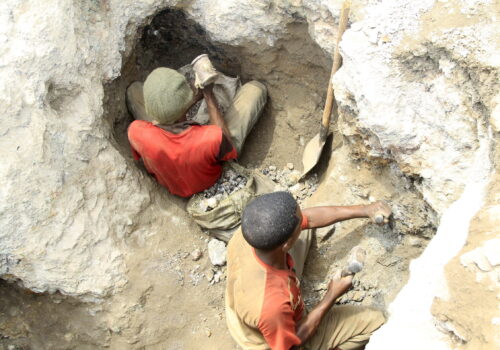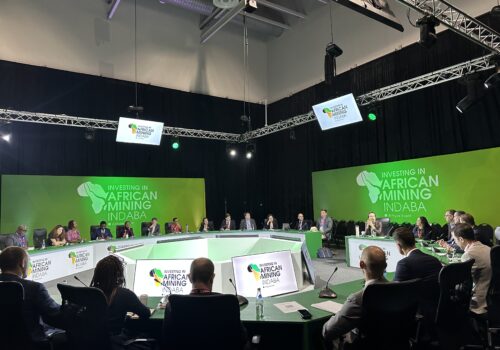Responsible stewardship models can transform Africa’s mineral wealth into prosperity
Bottom lines up front
- As the global race for minerals critical to green energy tech heats up, African nations should manage their mineral revenues with sovereign wealth funds applying best practices from funds like Norway’s and Saudi Arabia’s.
- Well-structured, credible sovereign wealth funds would lower risk, attract liquid capital markets, and facilitate strategic alliances for African nations.
- By aligning resource wealth management with domestic industrial policy, African countries can move beyond extraction and play a greater role in global supply chains.
Current production of critical minerals is largely insufficient to keep up with rapidly growing global demand for cobalt, nickel, manganese, and other minerals that are essential for new green technologies.
Africa has a significant opportunity to capitalize on the large-scale investments currently unfolding in the global mining sector: Roughly one-third of the world’s metal reserves including copper, cobalt, lithium, and manganese are found there. If the continent can move beyond extraction to maximize value through refining, it has the potential to become a major global hub for the mining industry.
However, the extreme volatility of natural resource revenues leaves African economies vulnerable to external shocks from fluctuating commodity prices, which can lead to substantial economic downturns. Additionally, the capacity limitations and operational bottlenecks within African governments often hinder the effective conversion of resource revenues into productive investments and long-term benefits. Given that minerals are inherently finite resources, there is a risk of declining trade balances as the surge in mineral earnings may be offset by increased imports of goods and services. Concurrently, other sectors of the economy may experience a decline in exports, particularly those disrupted by the rapid expansion of the critical minerals sector, potentially leading to the phenomenon known as “Dutch disease.”
To mitigate these risks, many mineral-rich nations have established sovereign wealth funds as tools for fiscal and financial planning, supporting both short- and long-term policy objectives. The primary purpose of these funds is to manage mineral revenues transparently and sustainably, protecting domestic economies from the volatility of strategic mineral and petroleum revenues while promoting long-term economic stability. Industrialized and developing nations alike have adopted sovereign wealth funds as a mechanism to stabilize government spending, shield against inflationary shocks, and serve as an intergenerational savings tool for finite resources.
In the African context, effective management of natural resource revenues presents a unique opportunity to drive long-term economic development. By adopting best practices, these revenues can be leveraged to invest in human and physical capital, build economic buffers to weather external shocks, and create lasting financial reserves. Transforming mineral resources into financial or physical assets can benefit citizens and foster broad-based economic and social development.
Read the full report
About the author
Mamadou Fall Kane is a nonresident senior fellow at the Atlantic Council’s Africa Center. He also is the deputy secretary of Senegal’s Strategic Orientation Committee for Oil and Gas, a committee created by the president to strengthen the management of natural resources following Senegal’s accession to the Extractive Industries Transparency Initiatives. He was energy advisor to the Senegalese president from 2016 to 2024. He graduated from Sciences Po Paris before completing his education at the Ecole Polytechnique of Paris in economics and public policy. He also holds an executive master’s degree in management and finance in innovation from the University of California, Berkeley.
Related content
Explore the program

The Africa Center works to promote dynamic geopolitical partnerships with African states and to redirect US and European policy priorities toward strengthening security and bolstering economic growth and prosperity on the continent.
Image: A man walks past an electronic board displaying movements in major indices at the Johannesburg Stock Exchange (JSE), in Sandton, South Africa, August 1, 2025. REUTERS/Siphiwe Sibeko



